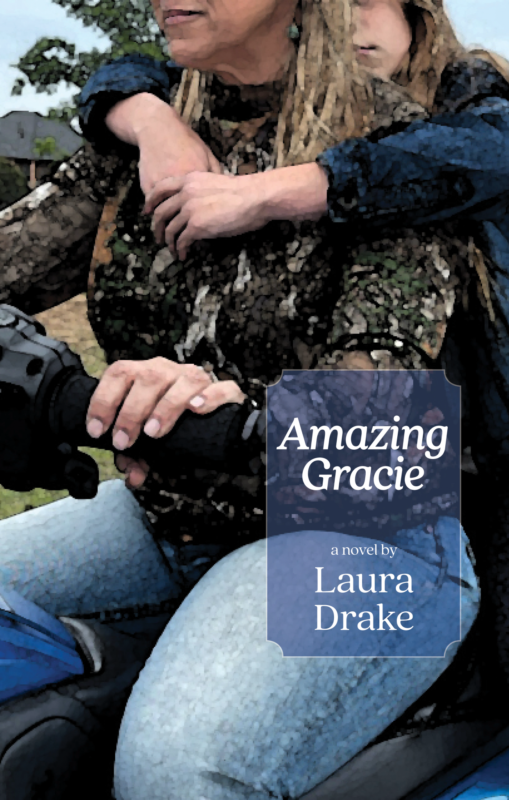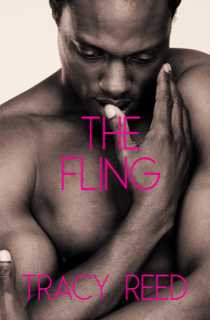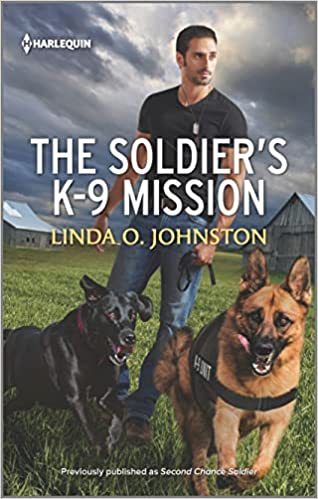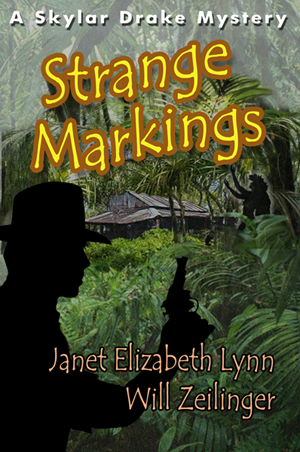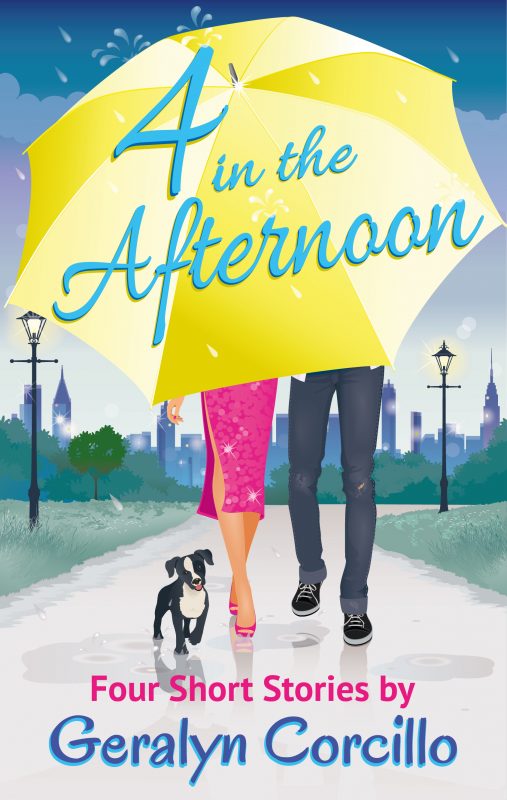Tari Lynn Jewett: August Featured Author
August 7, 2021 by Tari Jewett in category Featured Author of the Month tagged as #Charmed Writers, #FireworksintheFog, #HeromsaForTheHolidays, #PleaseSayYes, romantic comedy, Tari Lynn Jewett

Tari Lynn Jewett lives in Southern California with her husband of nearly thirty years (also known as Hunky Hubby). They have three amazing sons, a board game designer, a sound engineer and a musician, all who live nearby. For more than fifteen years she wrote freelance for magazines and newspapers, wrote television commercials, radio spots, numerous press releases, and many, MANY PTA newsletters. As much as she loved writing those things, she always wanted to write fiction…and now she is.
She also believes in happily ever afters…because she’s living hers.
Tari’s Books
To Cliff-Hang Or Not
August 5, 2021 by Tracy Reed in category Pink Pad by Tracy ReedTo Cliff-Hang or Not
It’s August. Wow. So far this has been a busy summer. We have been cleaning our backyard, a task we’ve put off since we finished the last round of renovations. We’re hopeful we’ll get it cleaned up so we can spend at least one weekend outside lounging. I have this fantasy of sitting outside with a glass of wine and a charcuterie board reading and writing. I’m very hopeful this will happen this summer. I may even open one of the bottles I brought back from France.
The other thing I’m hopeful will happen this summer is the completion of my book The Good Girl Part Four. Man, this book is turning out to be way more than I expected.
Mid way through writing The Good Girl Part Trois, I felt myself rushing to finish. I was so confident I told readers that I would have everything tied up with Part Trois. The joke was on me. It’s amazing how characters have the audacity to tell you when their story is finished. These characters made it very clear they were telling the story and not me.
I figured I’d go with the flow and once I realized there was going to be another book, I told my readers. I even promised it wouldn’t be long before the next book. Again, the characters put me in my place.
I have been working hard to bring this series to an end, but it seems like it’s not done. As much as I don’t want to admit it, there just might be a fifth book. I was faced with the possibility of a fifth book a few weeks ago. So far The Good Girl Part Four is 97k+. I was shocked. I haven’t written a book that big since my first book. And that was the first draft, which I later attacked with an electric saw.
So here’s my dilemma. Keep writing and see where the story ends or end book four with a cliffhanger like the other books in the series. Where I am in the story right now, I feel there’s a good six thousand more words…at least. That would make the book well over 100k words…way too big, I think.
I’ve been kicking around the possibility of a fifth book long before the word count got this high. When I was selecting cover images for the series, I held back one just in case. So finding a cover won’t be an issue. I’ve even been thinking about possibly using “book five” as an entry to a spin off series featuring Gabriella’s brother. If I do that, it would allow me to tell a little more of Gabriella and Phillippe’s story as well.
If I go with this plan, Part Four would definitely end with a cliffhanger. Adding a fifth book to this series would throw a monkey wrench in my publishing plan for the balance of the year. I really wanted to finish Unexpected Love Part Two this fall. I also wanted to write a holiday novella. Neither of which seem possible if I add a fifth book to The Good Girl Series.
The upside to adding a fifth book is I would have about a third of it complete. I did a read through and found a good spot to end Part Four. In doing so, it would give me a strong opening for Part Five. Because of where Part Four would end, I’d have about thirty thousand words to start Part Five.
As a reader, I’m of two minds when it comes to cliffhangers. If I like the characters and the story, a cliffhanger will not stop me from reading the next book. I have bought (at full price) into series without thinking about the price. I can think of three series right now where I purchased deep into the series without giving any thought to the price. Not only did I buy the books, but because I really enjoyed the series, I told others about the books.
I think if your readers are used to your giving them cliffs, it’s not a problem. However, if you’re new to reading an author and are presented a cliffhanger it can be annoying especially if the next book isn’t available. In the case of The Good Girl Series, each of the books ends on a cliff so I might be able to get away with this series plan.
Cliffhangers are a subject riddled with debate in the world of romance fiction. Everyone loves an HEA (Happy Ever After). In my writing world HFN (Happy For Now) and Cliffs are common. No matter how hard I try, cliffs seem to be inevitable and dare I say, my writing style.
What would you do…end book four with a cliffhanger and write a fifth book or make part four a super novel?
Starting a Novel Series with a Partner: The Plotting
August 3, 2021 by Janet Elizabeth Lynn and Will Zeilinger in category Partners in Crime by Janet Elizabeth Lynn & Will Zeilinger, Starting a Novel Series with a Partner by E. J. Williams tagged as E.J. Williams, Plotting, writing craft, writing partners
Starting a Novel with a Partner: The Plotting
by E.J. Williams
(Janet Elizabeth Lynn & Will Zeilinger)
My husband, Will Zeilinger, and I co-write thrillers, the INTERNATIONAL MYSTERY SERIES, as E. J. Williams. Our tales transport the reader from 1962 Southern California to various international locales. In the first new book of the series, STONE PUB, we find ourselves in County Cork, Ireland.
As we began this series, we experienced the same thing as with the previous, Skylar Drake Mystery Series. That is, we had all sorts of ideas stuck in our heads. Each of us had different scenarios we’d developed. We found it challenging to develop and agree on a central plotline for each story that would take the series across many books.
Meeting regularly with specific agendas and follow-up reports for reminders helped us narrow down the many ideas into the main idea, one that could be sustained through many future books. Daily, weekly, and monthly update meetings keep things flowing. Much like each chapter of a book drives the plot forward, the meetings should have a purpose. They should help drive the writing forward. Once we agreed on the plotline for the whole series, we could focus on the individual novels with similar foundations.
Regular meetings are the most efficient way of making a co-writing situation successful. Remember . . . the crucial thing is to write a good story. So, stay tuned . . . there is more to come.
STONE PUB is the first in the series, and yes…we are still married!
Website: Janet Elizabeth Lynn
Website: Will Zeilinger
Read Skylar Drake Mysteries while waiting for STONE PUB.
Australia’s Author Madeline Ash talks about her Cowboy Princes Series!!
August 2, 2021 by Jann Ryan in category Jann says . . . tagged as contemporary romance, Cowboy Romance, LQBTQIA+ Madeline Ash is an Australian contemporary romance author and two-time RITA Award finalist. She has also won Australia’s Romantic Book of the Year award (RUBY). She writes sexy-sweet novels with sensitivity and humor.
Madeline Ash is an Australian contemporary romance author and two-time RITA Award finalist. She has also won Australia’s Romantic Book of the Year award (RUBY). She writes sexy-sweet novels with sensitivity and humor.
I’m so excited to have Australian Author, Madeline Ash, with us today. Let’s see what’s been going on in her life lately.
Jann: What inspired you to write the Cowboy Princes series?
Madeline: I fell in love with the idea of men of the land having to unexpectedly ascend into a position of extreme power. I came up with the series concept back in 2017 when I was disenchanted and despondent with the values of so many world leaders. One of the many delights of being a fiction writer is the freedom to write a better world, so I decided to pair cowboy values (hard work, respect, integrity, fairness, generosity, and truth) with leadership to see what kind of society they would create. It was very much a case of “write what you’d love to read” because the kingdom of Kiraly is pretty darn close to utopia!
Jann: When starting this new series, did you think of character, plot or theme first?
Madeline: Characters tend to come to me first during planning. For this series, I knew I wanted triplet cowboy brothers as the main characters who were also secret princes of a kingdom across the world from small-town Montana. I developed the brothers first, both how they were similar to each other and how they were different, including their personalities, strengths and weaknesses. Then I mapped out a vague series arc so that I knew I’d be plotting the individual books in the right direction! After that, my focus drilled down to plotlines, themes, and which romance tropes would be the juiciest for each brother.
Jann: Your main characters in Book One Her Cowboy King, Mark Jaroka and Princes Ava Versi, debuted on July 9, 2019. Which character did you develop first?
 Madeline: Mark came first, along with his two brothers, Kris and Tommy. Once I had developed Mark’s personality—the grounded, kind-hearted, dependable brother—I then considered what type of heroine would add the most conflict to his already tumultuous journey of inheriting a throne he never believed he’d be required to possess. What kind of woman would make his arrival in Kiraly even more challenging? I know! A princess who’s under pressure from her parents to enter a strategic marriage with this new cowboy king—but secretly has plans to escape royal life, and so acts appallingly superior toward Mark in order to make him refuse the union. She was vulnerable and scared on the inside, but supercilious and sarcastic on the outside. Mark had no idea how to approach such a heroine and it made for unpredictable, tension-rich interactions.
Madeline: Mark came first, along with his two brothers, Kris and Tommy. Once I had developed Mark’s personality—the grounded, kind-hearted, dependable brother—I then considered what type of heroine would add the most conflict to his already tumultuous journey of inheriting a throne he never believed he’d be required to possess. What kind of woman would make his arrival in Kiraly even more challenging? I know! A princess who’s under pressure from her parents to enter a strategic marriage with this new cowboy king—but secretly has plans to escape royal life, and so acts appallingly superior toward Mark in order to make him refuse the union. She was vulnerable and scared on the inside, but supercilious and sarcastic on the outside. Mark had no idea how to approach such a heroine and it made for unpredictable, tension-rich interactions.
Jann: Kris Jaroka and Frankie Cowan are the main characters in Book Two Her Cowboy Prince. Tell us about their story and how they get their HEA.
 Madeline: I love this couple! They have always had intense chemistry, but haven’t wanted to risk their friendship to pursue it. Kris is the confident, cocky, roguish brother—who only discovers once he arrives in Kiraly that his kickass best friend actually works for palace security. Frankie moved to his small town of four years ago to monitor the safety of his family, and befriended him in order to get close enough to do so successfully. This betrayal fuels the opening chapters of the book, and once Kris’s reckless behavior forces her to become his personal bodyguard, their forced proximity blows their attraction sky high while their fiery attitudes add extra heat. This book is full of quick banter and serious sexual chemistry, all within the increasing tension of the overall series plot.
Madeline: I love this couple! They have always had intense chemistry, but haven’t wanted to risk their friendship to pursue it. Kris is the confident, cocky, roguish brother—who only discovers once he arrives in Kiraly that his kickass best friend actually works for palace security. Frankie moved to his small town of four years ago to monitor the safety of his family, and befriended him in order to get close enough to do so successfully. This betrayal fuels the opening chapters of the book, and once Kris’s reckless behavior forces her to become his personal bodyguard, their forced proximity blows their attraction sky high while their fiery attitudes add extra heat. This book is full of quick banter and serious sexual chemistry, all within the increasing tension of the overall series plot.
Jann: Congratulations on this book being a finalist in the RUBY Award (The Romantic Book of the Year) presented by Romance Writers of Australia. What was it like to receive the news?
Madeline: Thank you! It’s a huge thrill to final in these awards. This is my fifth book to place as a finalist in the Ruby Award, but the excitement doesn’t get any less over time! These awards are exclusively judged by readers (rather than entrant authors also participating in judging), so it’s extra special to be deemed worthy of this award by judges who read a lot of the genre!
Jann: Book Three, The King’s Cowboy, is a M/M romance. What motivated you to write a M/M romance?
Madeline: I read quite a lot of LGBTQIA+ romance as well as straight romance, and have noticed that series are often exclusively one or the other, rather than including main characters from a range of sexualities across the series. To me, this doesn’t seem fully reflective of the world we live in, so I wanted to write a series that reflects the diversity of identities often found within a single family (since I’m writing three brothers).
Tommy is our final hero in this core series—reserved, intelligent, and suffering from severe social anxiety. He’s also the brother with the greatest sense of inherent power and authority. This internal struggle—to be the royal he is drawn to be, while battling the anxiety of filling one of the most public positions—is compelling and (in my wildly biased opinion) a very strong finish to the series. His love interest is Jonah, his best friend from Montana and the biggest sweetheart of a cowboy you’ll ever meet. I strove to make their romance is intense, gripping, and utterly unputdownable!
Jann: What do you hope readers will take away from this series?
Madeline: Comfort. It’s a pure escapist read, following the unlikely lives of three fiercely-bonded brothers, who make decisions based on what’s right and just and decent, set in a vibrant, open-armed mountain kingdom that is like a character of its own. I hope that the series feels like a reassuring, warmhearted (and sexy) hug that readers want to come back to again and again.
Jann: What kind of writer are you? A page a day or a burst writer?
Madeline: I guess I could call myself a scheduled writer? When starting a new book, I work backward from my deadline. Since I’m only able to write on Thursdays and Fridays, I check how many writing days between now and the deadline. Then I decide on an intended word count for the book, divide that by the number of days in which I have to write it, and calculate how many words per day I have to write to meet the deadline. I use that daily word count to drive my writing and generally manage to stick to it! If I fall behind for whatever reason, I’ll generally write on the weekend to catch up before the following week.
Jann: Where can we get your books?
Madeline: My books are available digitally across most ebook platforms—Amazon, iBooks, Kobo, and Barnes & Noble, and some are also on Google Play. Paperback copies are available via Amazon.
Jann: What is your favorite word?
Madeline: Seldom. I’m not sure what it is about it. Perhaps the fact that I read and hear it so seldom!
Jann: Madeline, this has been so much fun. Thank you for your time. It was great to have a peak into your writing world. Wishing you luck in the contest for the RUBY Award!!
The Cowboy Princes Series
Hover over the cover for buy links. Click on the cover for more information.
Tari Lynn Jewett: August Featured Author
August 1, 2021 by Tari Jewett in category Featured Author of the Month tagged as #Charmed Writers, #FireworksintheFog, #HeromsaForTheHolidays, #PleaseSayYes, romantic comedy, Tari Lynn Jewett

Tari Lynn Jewett lives in Southern California with her husband of nearly thirty years (also known as Hunky Hubby). They have three amazing sons, a board game designer, a sound engineer and a musician, all who live nearby. For more than fifteen years she wrote freelance for magazines and newspapers, wrote television commercials, radio spots, numerous press releases, and many, MANY PTA newsletters. As much as she loved writing those things, she always wanted to write fiction…and now she is.
She also believes in happily ever afters…because she’s living hers.
Tari’s Books
Affiliate Links
A Slice of Orange is an affiliate with some of the booksellers listed on this website, including Barnes & Nobel, Books A Million, iBooks, Kobo, and Smashwords. This means A Slice of Orange may earn a small advertising fee from sales made through the links used on this website. There are reminders of these affiliate links on the pages for individual books.
Search A Slice of Orange
Find a Column
Archives
Featured Books
AMAZING GRACIE
CJ has returned from war. But she has not left the war behind.
More info →THE FLING
Every woman is beautiful. Sometimes it just takes the right man to show you just how beautiful you are.
More info →STRANGE MARKINGS
The Pacific breezes blow many things in from the ocean, this time its power, greed, and murder.
More info →4 IN THE AFTERNOON
Dates, dogs, football, monsters in the attic, misunderstandings, and unexpected discoveries abound in these four romantic comedy short stories.
More info →Newsletter
Contributing Authors
Search A Slice of Orange
Find a Column
Archives
Authors in the Bookstore
- A. E. Decker
- A. J. Scudiere
- A.J. Sidransky
- A.M. Roark
- Abby Collette
- Alanna Lucus
- Albert Marrin
- Alice Duncan
- Alina K. Field
- Alison Green Myers
- Andi Lawrencovna
- Andrew C Raiford
- Angela Pryce
- Aviva Vaughn
- Barbara Ankrum
- Bethlehem Writers Group, LLC
- Carol L. Wright
- Celeste Barclay
- Christina Alexandra
- Christopher D. Ochs
- Claire Davon
- Claire Naden
- Courtnee Turner Hoyle
- Courtney Annicchiarico
- D. Lieber
- Daniel V. Meier Jr.
- Debra Dixon
- Debra H. Goldstein
- Debra Holland
- Dee Ann Palmer
- Denise M. Colby
- Diane Benefiel
- Diane Sismour
- Dianna Sinovic
- DT Krippene
- E.B. Dawson
- Emilie Dallaire
- Emily Brightwell
- Emily PW Murphy
- Fae Rowen
- Faith L. Justice
- Frances Amati
- Geralyn Corcillo
- Glynnis Campbell
- Greg Jolley
- H. O. Charles
- Jaclyn Roché
- Jacqueline Diamond
- Janet Lynn and Will Zeilinger
- Jaya Mehta
- Jeannine Atkins
- Jeff Baird
- Jenna Barwin
- Jenne Kern
- Jennifer D. Bokal
- Jennifer Lyon
- Jerome W. McFadden
- Jill Piscitello
- Jina Bacarr
- Jo A. Hiestand
- Jodi Bogert
- Jolina Petersheim
- Jonathan Maberry
- Joy Allyson
- Judy Duarte
- Justin Murphy
- Justine Davis
- Kat Martin
- Kidd Wadsworth
- Kitty Bucholtz
- Kristy Tate
- Larry Deibert
- Larry Hamilton
- Laura Drake
- Laurie Stevens
- Leslie Knowles
- Li-Ying Lundquist
- Linda Carroll-Bradd
- Linda Lappin
- Linda McLaughlin
- Linda O. Johnston
- Lisa Preston
- Lolo Paige
- Loran Holt
- Lynette M. Burrows
- Lyssa Kay Adams
- Madeline Ash
- Margarita Engle
- Marguerite Quantaine
- Marianne H. Donley
- Mary Castillo
- Maureen Klovers
- Megan Haskell
- Melanie Waterbury
- Melisa Rivero
- Melissa Chambers
- Melodie Winawer
- Meriam Wilhelm
- Mikel J. Wilson
- Mindy Neff
- Monica McCabe
- Nancy Brashear
- Neetu Malik
- Nikki Prince
- Once Upon Anthologies
- Paula Gail Benson
- Penny Reid
- Peter J Barbour
- Priscilla Oliveras
- R. H. Kohno
- Rachel Hailey
- Ralph Hieb
- Ramcy Diek
- Ransom Stephens
- Rebecca Forster
- Renae Wrich
- Roxy Matthews
- Ryder Hunte Clancy
- Sally Paradysz
- Sheila Colón-Bagley
- Simone de Muñoz
- Sophie Barnes
- Susan Kaye Quinn
- Susan Lynn Meyer
- Susan Squires
- T. D. Fox
- Tara C. Allred
- Tara Lain
- Tari Lynn Jewett
- Terri Osburn
- Tracy Reed
- Vera Jane Cook
- Vicki Crum
- Writing Something Romantic
Affiliate Links
A Slice of Orange is an affiliate with some of the booksellers listed on this website, including Barnes & Nobel, Books A Million, iBooks, Kobo, and Smashwords. This means A Slice of Orange may earn a small advertising fee from sales made through the links used on this website. There are reminders of these affiliate links on the pages for individual books.























